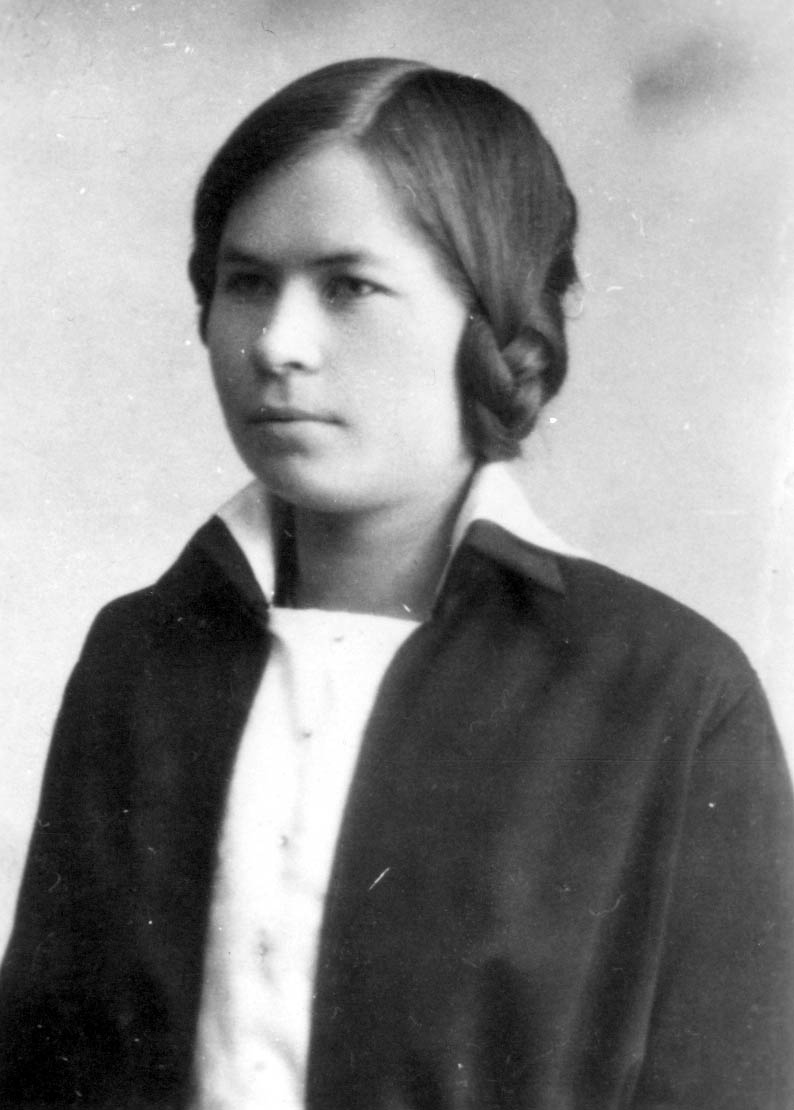
Marie Heiberg
Marie Heiberg (10. IX 1890 – 15. II 1942) was a poet who also wrote short prose works. A representative of early 20th-century Estonian neo-romanticism, she began her creative journey while very young, but serious illness brought it to a premature end.
Heiberg was born in Urvaste parish in Võru County and attended Urvaste primary school; her subsequent studies were somewhat erratic. In 1907 she moved to Tartu, where she was active in the local literary and cultural life. She socialised with the members of the Noor-Eesti (Young Estonia) literary group, with whom she had already been in contact beforehand. Hoping to dedicate herself to creative work, she lived in very straitened circumstances, doing odd jobs when in dire need and occasionally contributing to the press. Inability to cope with day-to-day concerns, creative failures, and several personal misadventures all took a toll on the mental stability of the sensitive Heiberg. In 1919 the poet was taken for the first time to Seewald Psychiatric Clinic in Tallinn for treatment, after which she never fully recovered her health. In 1923 she was admitted to the same hospital again, and remained there with incurable schizophrenia for 20 years, until the end of her life. Heiberg died in Tallinn in 1942.
Heiberg’s talent was already evident in childhood. In 1905 the first poems and prose pieces by the 14-year-old “prodigy” were published in the magazine Linda. The following year saw the publication of Heiberg’s first poetry collection, Murelapse laulud (‘Songs of a Child of Sorrow’), which the Young Estonians Friedebert Tuglas and Gustav Suits helped to compile and polish. The debut collection was very well received on account of its youthfully fresh sentimental lyrics which revolve around high hopes and melancholy arising from an impending sense of their being unattainable. There are also moments of pure joy of life and optimistic visions of the future. The young author’s mode of expression is spontaneous, at times reminiscent of Estonian folk song, at others in freer verse; there are a number of prose poems as well.
Unlike her debut collection, Heiberg’s second book of poetry, Luule (‘Poetry’, 1913), went practically unnoticed by the public. Luule reveals the author’s matured awareness of form, but less simplicity and artlessness. Motifs familiar from the debut collection are repeated and elaborated in rather more complex fashion. Sadness still prevails, with an emphasis on loss, evanescence and death. Urban motifs and a sense of the precariousness of townspeople are new features. Poetry itself becomes the ideal and the source of enlightenment, creativity deemed higher than truth. Heiberg continued to write poetry from 1914–1918, most notably, reflections on life prompted by World War I, as well as lyric love poems. Some poems which remained in manuscript form are published in the posthumous selection Käisin üksi tähte valgel (‘I Walked Alone in Starlight’, 1988).
About twenty of Heiberg’s short stories were published in the press. The romantic short story, Elukevade (‘The Spring of Life’), which depicts the first love of a young girl with high ideals, mostly through the thoughts and feelings of the main character, appeared in print in a separate volume in 1910. Equally lyrical in tone is the collection of short prose pieces Enne viimset päeva (‘Before Doomsday’, 1914). The collection contains compositions and fairy tales made up of miniatures. These genres are very characteristic of Estonian neo-romanticist short fiction of the beginning of the 20th century, especially in the work of young authors.
E. S. (Translated by M. M.-K.)
Books in Estonian
Poems
Mure-lapse laulud. Tartu: Noor-Eesti, 1906, 71 lk. [E-raamat: Tallinn: Digira, 2014. Kättesaadav: https://www.digar.ee/arhiiv/nlib-digar:213222.]
Luule. Tartu: 1913, 86 lk.
Käisin üksi tähte valgel. Koostanud ja järelsõna Kajar Pruul. Tallinn: Eesti Raamat, 1988, 161 lk.
Rändaja tütarlaps. Koostanud Hando Runnel, toimetanud Siiri Ombler, järelsõna: Peeter Lindsaar. Tartu: Ilmamaa, 2017, 286 lk.
Short stories
Elukewade: Nowell. Tartu: Postimees, 1910. 84 lk.
Enne viimset päeva. Tartu 1914. 103 lk.
Õnnetäht: uudis- ja mõistujutud. Koostanud Hando Runnel, toimetanud Liis Vaher. Tartu: Ilmamaa, 2017, 350 lk.
Non-fiction
Üks naine kurbade silmadega: Eesti luuletaja Marie Heibergi õnne ja valu, rõõmu ja mure lugu kirjades. Koostajad Iivi Lepik, Kirsten Simmo; lisatekstid: Iivi Lepik, Viivi Luik, Kirsten Simmo; toimetajad Katre Koit, Hedi Rosma. Tallinn: Eesti Teatri- ja Muusikamuuseum: SE & JS, 2010, 262 lk + 1 CD. [Marie Heibergi kirjad Friedebert Tuglasele.]



